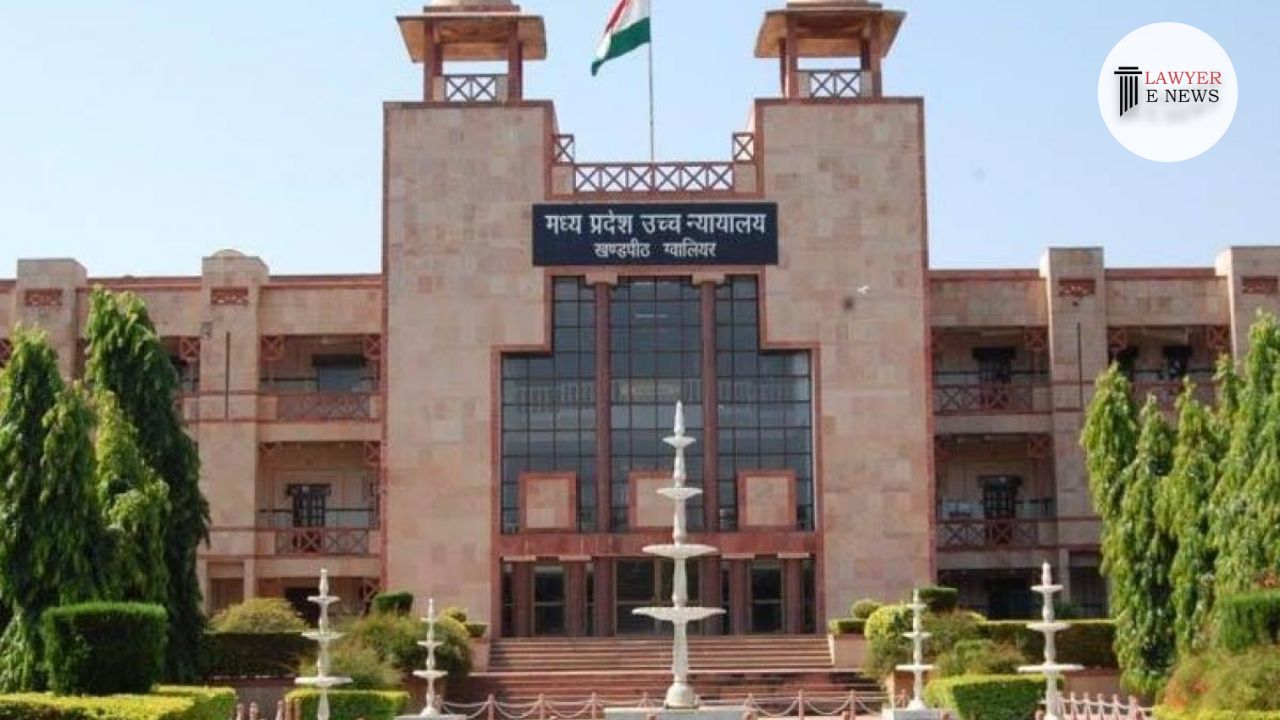-
by Admin
15 February 2026 5:35 AM



Madhya Pradesh High Court, in a judgment delivered by Justice Prem Narayan Singh, partly allowed two criminal appeals in the case of Sugreev & Others v. State of Madhya Pradesh. The court modified the conviction of Sugreev from Section 307 IPC (Attempt to Murder) to Section 326 IPC (Voluntarily Causing Grievous Hurt by Dangerous Weapons) after finding that the injuries caused were not life-threatening and were inflicted on non-vital parts. Co-accused Ghanshyam's conviction was similarly reduced from Section 307 IPC to Section 323 IPC (Voluntarily Causing Hurt), with no further imprisonment required as he had already served approximately two years in custody.
In October 2021, Sugreev, armed with a gun, and his accomplice Ghanshyam allegedly attacked the complainant Santosh, his father Govind, and other family members. The prosecution claimed that Sugreev fired shots that injured Govind in the leg, while Ghanshyam inflicted injuries on Santosh's head using a blunt object. Following a trial, both were convicted under Section 307 IPC by the Trial Court and sentenced to seven years of rigorous imprisonment. The appellants challenged their conviction, arguing that the injuries were not life-threatening and that they should not have been convicted under Section 307 IPC.
Applicability of Section 307 IPC (Attempt to Murder): The primary issue was whether Sugreev and Ghanshyam should be convicted under Section 307 IPC. The defense argued that the injuries were on non-vital parts and, therefore, lacked the intention to cause death, a key component for a conviction under Section 307 IPC.
Medical vs. Ocular Testimony: A significant legal question was whether the court should rely on the medical evidence, which contradicted some aspects of the eyewitness testimony. The defense argued that medical testimony should prevail, particularly regarding the nature of Santosh’s injury.
Common Intention and Applicability of Section 34 IPC: The court also examined whether the appellants acted with common intention, invoking Section 34 IPC, or whether they should be held individually responsible for their respective acts.
Reduction of Conviction from Section 307 IPC to Section 326 IPC: The court found that while Sugreev had fired a gunshot at Govind, the injuries were limited to the legs, a non-vital part of the body. The medical evidence indicated that the injuries were grievous but not life-threatening. Citing relevant precedents, including Jai Narayan Singh v. State of Bihar (1972) and Panchram v. State of Chhattisgarh (2023), the court held that the intention to cause death could not be established.
"Undisputedly, this is a case of two blows on the leg, which is admittedly not a vital part of the human body," the court observed, adding that Sugreev’s conviction should be modified to Section 326 IPC.
Ghanshyam’s Conviction Reduced to Section 323 IPC: The court also reduced Ghanshyam’s conviction from Section 307 IPC to Section 323 IPC. The medical testimony, particularly from Dr. J.P. Dubey (PW-11), revealed that Santosh's injury was caused by a blunt object and was not a gunshot wound. As Ghanshyam had already served approximately two years in jail, no further imprisonment was required.
"The injury of Santosh will be considered as simple injury... Ghanshyam will only be liable for causing simple injury to Santosh and thereby he can only be convicted under Section 323 IPC," the court held.
Prevalence of Medical Testimony over Ocular Evidence: The court ruled that medical evidence should prevail in this case, especially when it contradicted the eyewitness accounts. It noted that while ocular testimony generally carries more weight, medical evidence should be given precedence when it completely rules out the possibility of the events occurring as described by the witnesses.
"When the medical evidence makes the ocular testimony improbable, the court must rely on the medical evidence," the court stated, citing the Supreme Court’s ruling in Bhajan Singh v. State of Haryana (2011).
Common Intention Not Established: The court also held that the prosecution failed to establish common intention under Section 34 IPC. The injuries were inflicted in the heat of the moment, without any premeditation or common object. As a result, the appellants were held individually liable for their actions.
"The ingredients of common object and common intention cannot be envisaged," the court concluded, convicting the appellants based on their individual roles.
The Madhya Pradesh High Court allowed the appeals in part. Sugreev's conviction was reduced from Section 307 IPC to Section 326 IPC, with his sentence modified to three years of rigorous imprisonment and a fine of Rs. 50,000. Ghanshyam's conviction was reduced to Section 323 IPC, with no further imprisonment required as he had already served time in custody. The court also directed that part of the fine amount be paid as compensation to the injured victims under Section 357(3) CrPC.
Date of Decision: 23/09/2024
Sugreev & Others v. State of Madhya Pradesh
